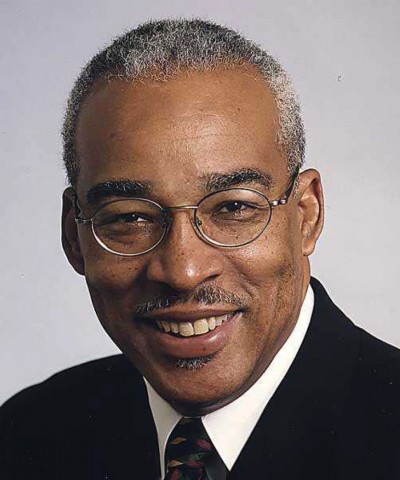
When Dan Boggan heard how African Americans in his father’s generation couldn’t go to certain restaurants and schools, he became motivated to work his way to the top in his fight against injustice. “I was driven to make sure that doors were open,” he says.
He started by opening the Frieze Building doors at the U-M School of Social Work to acquire some powerful raw skills. Those skills helped him advance in managerial jobs from New Jersey to Berkeley and achieve his dream: to integrate workplaces by opening doors from the inside.
Boggan grew up in Albion, Michigan, with a homemaker mother and a father who worked long, hot days as a foundry worker and farmer. “You’ve got to get your education,” they taught Boggan and his eight siblings.
He got his first taste of working for civil rights while still in high school and then continued during his first three years at Albion College. While at Albion, Boggan served as president of the local NAACP chapter and also as an award-winning state president of the NAACP’s Michigan Conference of Youth and College Chapters.
After graduating from Albion College in 1967—the year that major race riots lit up Detroit—Boggan decided on a graduate education that involved his interest in working for civil rights. He applied to the U-M School of Social Work for a degree in community practice. Professor John Tropman was one of his favorites, says Boggan. “He got you engaged, made you think, made you work hard, but was easy to talk to. I remember to this day reading (Amitai) Etzioni. Those were principles I’ve relied on, along with Drucker’s ‘Management by Objective.’”
He took his freshly printed MSW diploma to Starr Commonwealth in Jackson and worked as the campus manager. After that, networking guided his career. A friend from the NAACP wooed him to work for the Jackson city government and so did friends in other governments in Flint, Portland, San Diego, Essex County–New Jersey, and Berkeley, where he was city manager. His Berkeley experience landed him an 8½-year stint as a vice-chancellor at the University of California, Berkeley, and his athletic experience there led him to his final job before retirement at 58 as senior vice president and chief operating officer of the National Collegiate Athletic Association (NCAA).
His degree, he feels, gave him “transferable skills.” “I found out in almost everything you do you’re managing people and financial resources, you’re providing leadership, and you have to understand how to lead,” he says.
Another work constant for Boggan is the two-sided coin of flexibility and firmness. “Change is always something you’ll deal with,” he says. “I remember telling one fire chief when I was city administrator, ‘either you make this decision or I’ll make it for you.’”
“Sometimes it’s difficult,” he says, “but I remember what my mom said: ‘This too shall pass.’”
According to Professor Michael Heyman, the chancellor and Boggan’s former boss at University of California, Berkeley, Boggan “was especially successful in his relationships with staff—open, responsive, caring, and quite respectful.”
Underneath Boggan’s well-modulated, soft-spoken voice isn’t just a savvy semi-retired administrator. There beats the heart of a poet who writes regularly, the loving hand of a husband and father of four, and the legs of an athlete who can still play three games of basketball in one morning.
He continues to contribute his decision-making abilities to a mind-numbing twelve corporate and nonprofit boards including Clorox, Payless Shoes, and the California Endowment.
Without a secretary, “the first year I retired, I nearly sank.” Says the man who helped so many others rise up, “I realized all the things an organization can do to support you.”
—Debbie Eisenberg Merion, MSW ’78, is a writer and writing coach in Ann Arbor, Michigan.